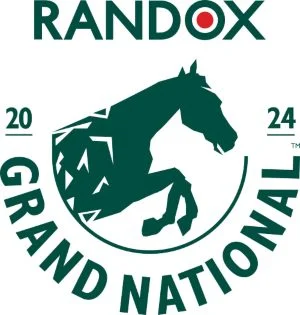 Known in his heyday as the ‘golden boy of English football’, Bobby Moore will always be best remembered for the iconic photograph of him being held aloft by teammates Geoff Hurst and Ray Wilson, Jules Rimet trophy in hand, at the end of the World Cup final at Wembley Stadium on July 30, 1966. Indeed, manager Sir Alf Ramsey later said of Moore, ‘Without him England would never have won the World Cup.’
Known in his heyday as the ‘golden boy of English football’, Bobby Moore will always be best remembered for the iconic photograph of him being held aloft by teammates Geoff Hurst and Ray Wilson, Jules Rimet trophy in hand, at the end of the World Cup final at Wembley Stadium on July 30, 1966. Indeed, manager Sir Alf Ramsey later said of Moore, ‘Without him England would never have won the World Cup.’
Born in Barking, Essex on April 12, 1941, Moore was outstanding centre-half, renowned for calmness, composure and intelligence on the pitch and humility, modesty and integrity off it. He made his senior debut for England in a friendly against Peru at Estadio Nacional del Perú, Lima on May 20, 1962 and impressed manager Walter Winterbottom sufficiently to play in every game of the 1962 World Cup in Chile, where England reached the quarter-finals.
The following year Sir Alf Ramsey replaced Walter Winterbottom as England manager and, on the first anniversary of his first senior cap, on May 20, 1963, Moore captained England for the first time in a friendly against Czechoslovakia at Tehelne Pole Stadion, Bratislava. All told, Moore made 108 appearances for England, including 90 as captain.
At club level, Moore made his professional debut for West Ham United at Upton Park on September 8, 1958, at the age of 17, against Manchester United. He was appointed captain for the first time on April 20, 1962, having just turned 21, and subsequently led his club to victory in the FA Cup in 1964 and the European Cup Winners’ Cup in 1965. All told, he made a then record 544 league appearances, and 642 in all, for West Ham United, nefore being sold to Fulham in 1974. Thereafter,
he spent short spells in America, with San Atonio Thunder and Seattle Sounders, and in Denmark, with Boldklubben Herning Fremad, before finally hanging up his boots in 1979.
 Office Sweepstakes are once again on all of our minds, because that’s right, it’s nearly time for the jewel in the crown of horse racing that is the Grand National. This national hunt spectacle is held annually (this year on Saturday 13th April) at Aintree near Liverpool and attracts the very best of the world of racing, from horse and jockey, to trainer and owner. The purse for the Grand National is £1 million+ with the winner taking away £561,000 in 2024.
Office Sweepstakes are once again on all of our minds, because that’s right, it’s nearly time for the jewel in the crown of horse racing that is the Grand National. This national hunt spectacle is held annually (this year on Saturday 13th April) at Aintree near Liverpool and attracts the very best of the world of racing, from horse and jockey, to trainer and owner. The purse for the Grand National is £1 million+ with the winner taking away £561,000 in 2024.
Last years Grand national was won by Corach Rambler, who is back and looking to do the double at horse racing betting odds of just 4-1. That goes to show how confident bookmakers and punters alike are of his chances. I’m sure trainer Lucinda Russell’s is confident too considering the relative ease at which her horse romped home in the previous years National. Having also solidified a claim to being one of the best staying chasers around in this years Cheltenham Gold Cup, Russell has stated that the result and preparation is ‘exactly what we wanted’.
Bookmakers are worried, with one highlighting that since said performance “he has been absolutely hammered in the betting”. They’ll of course be hoping for a different result, but who else could be in the running?
One obvious contender is trainer Willie Mullins’ I am Maximus. At 7-1 and with a very impressive win in the Bobbyjo Chase at the tailed of February, it’s clearly a danger to the Corach Rambler fairytale ending. Those looking for slightly bigger odds might want to go with Mr Incredible at 14-1. While this talented chaser unseated jockey Brian Hayes in last years Grand National he’s had some very spirited displays (2nd in last seasons Classic Chase for instance). It’s another Mullins horse (he has nine in the 2024 Grand National!) too.
For those less inclined to bet on a favourite and more for a rank outsider, how about Delta Work at 25-1. He the Cross Country Chase at last years Cheltenham Festival and was also going well in the National until unseating his rider. Worth a shot at those odds surely.
I just now caught this humourous video from Betway giving us a somewhat comical reminder that the Cheltenham Festival is just around the corner . It’s certainly a timely nudge if you ask me as the unmissable 12th – 15th March Festival is under a month away now and punters both serious and casual, are surely all looking forward to this feast of top class racing action and who will emerge victorious in these compelling matchups. Over four days and on both ITV Racing and Racing TV there’s little excuse not to tune in, and of course that can often be accompanied with having a flutter too. With so many races to choose from there is certainly no shortage of betting opportunities.
Every festival has its narrative, as the Cheltenham festival betting attests, and a horse or person to be etched into the history books. This years question just has to be the answer to the question of whether the Audrey Turley owned and W P Mullions trained Galopin Des Champs can win the Cheltenham Gold cup two years running? Having won as favourite in 2023, he’s once again in that position and in ‘doing the double’ would enter the history books alongside only 8 others to have won the prestigious event more than once, last being the Willie Mullins trained (yes, again!) Al Boum Photo in both 2019 and 2020.
Racing is all about making legends and so it would certainly be fitting if Mullins once again struck Gold in 2023 and 2024 likely resulting in both him and rider Paul Townend winning champion trainer and jockey respectively (again!). Time will tell how events unfold and I for one can’t wait to find out. Bring on that Cheltenham Roar.
Choosing a reliable betting platform is of significant importance for anyone seeking to engage in sports betting. Similar to any other enterprise, engaging in sports betting requires the presence of a dependable collaborator who can be entrusted with both financial resources and personal data. Therefore, what is the process for picking a platform that will not disappoint? Presented below is a comprehensive checklist designed to provide guidance and structure throughout the whole of the procedure.
Licensing and data security
The topics of licensing and data security are of significant importance in the field of information technology. The first and paramount aspect to be taken into account pertains to licensing and the safeguarding of data. A site such as casino.netbet.co.uk shall possess the requisite licenses and certificates issued by relevant governmental entities and other licensing organisations. The Betting Control and Licensing Board serves as the primary regulatory authority overseeing all betting sites. It is important to consistently verify the presence of these credentials and thoroughly examine the encryption levels used by the website in order to ascertain the safety and security of one’s data.

Diverse Payment Methods and Internet-Based Gambling Establishments
Another crucial aspect to consider is the range of payment methods that are offered. A reliable platform will provide a variety of options for both depositing and withdrawing funds. The spectrum of available financial services includes both mobile money platforms and conventional banking alternatives. It is noteworthy that this element has significance not just for sports betting platforms but also for online casinos. In addition to providing a diverse selection of payment methods, a reputable online casino will facilitate convenient bankroll management for players.
Incentives, Advancements, and Propositions
Who does not appreciate a favourable supplementary benefit? A dependable betting platform will provide a diverse range of incentives, promotional activities, and exclusive deals in order to sustain player involvement. Seek for platforms that provide a significant initial deposit offers, regular promotional offers, and other incentives. These incentives have the potential to greatly improve one’s betting experience and provide higher returns on their bets.
Analysis of Customer Reviews
The significance of consumer reviews should not be underestimated. It is advisable to allocate a certain amount of time to peruse evaluations provided by other customers in order to get insights about the platform’s dependability and quality of customer support. Positive reviews serve as a favourable indicator; nevertheless, it is important to scrutinise the platform’s response to negative criticism. This will provide an understanding of their customer service quality and the level of importance they place on user experience.
The user interface
The user interface (UI) refers to the visual and interactive elements that allow users to interact with a computer system or software application. Lastly, it is important to take into consideration the user interface of the platform. The impact of a well-structured and user-friendly website on one’s betting experience cannot be underestimated. Seek a platform that provides a visually uncluttered interface and convenient accessibility to all essential functionalities.
In conclusion, it can be inferred that the provided information supports the notion that the user’s.
Selecting a reliable betting platform should not be an intimidating endeavour. By adhering to this checklist, individuals may effectively evaluate various platforms and choose one that fulfils all their requirements. It is important to bear in mind that the pivotal elements that need consideration include licensing, data security, payment methods, customer feedback, and user interface. Wishing you a pleasant and successful gambling experience!

